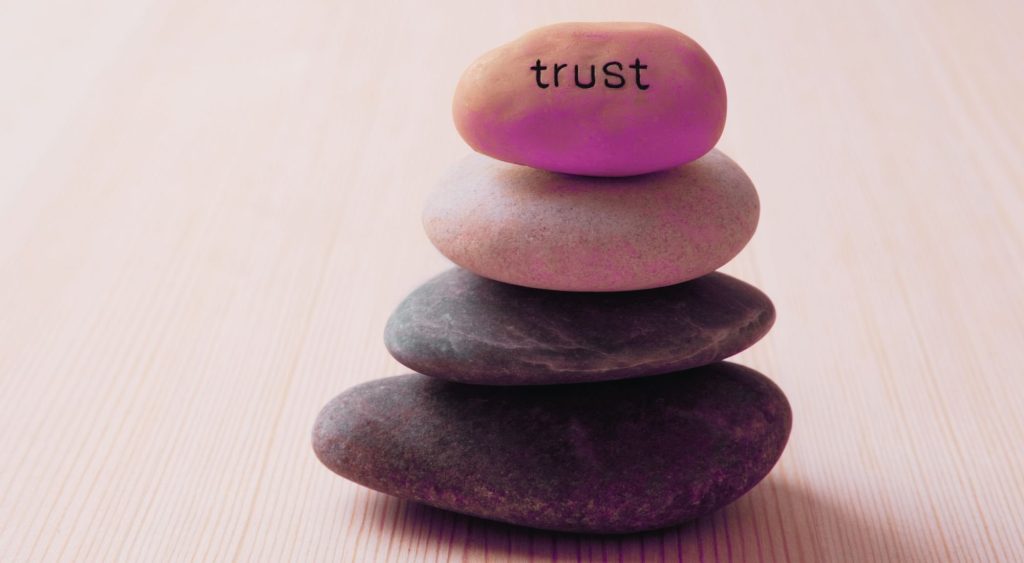Strategies to Turn Criticism into Opportunities for Personal and Professional Growth

The Unseen Potential of Criticism
In today’s dynamic landscape—be it in bustling business centers in Lagos, cozy offices in Port Harcourt, or innovative startups in Abuja—criticism plays an essential role in the workplace. Navigating through both constructive and severe feedback is an art that many professionals must learn, particularly in Nigeria, where diverse cultural backgrounds and expectations influence interactions. Instead of viewing criticism as merely an uncomfortable hurdle, it should be perceived as a golden opportunity for both personal and professional growth. When approached with the right mindset, criticism can illuminate pathways to future success.
Recognizing the Benefits
Although criticism can evoke a defensive reaction, it conceals several key advantages that can enhance one’s career trajectory. Below are noteworthy benefits that warrant consideration:
- Self-awareness: Criticism serves as a mirror, reflecting areas we may overlook in our skills and behaviors. For instance, a manager pointing out a team member’s lack of initiative in meetings can spur that employee to become more proactive and engaged.
- Improvement: Feedback encourages targeted enhancements in our work performance. For example, a marketing executive receiving input on their campaign strategy can refine their approach, incorporating new trends and innovative tactics that resonate better with their audience.
- Resilience: Learning to handle criticism fortifies emotional strength and adaptability. The experience can build resilience, helping professionals in Nigeria bounce back stronger from setbacks, especially in a competitive job market.
By shifting our perspective to embrace a growth mindset, we can convert feedback into a powerful tool for advancement. Viewing criticism not as a setback but as a guiding compass leads to paths of professional excellence and fulfillment.
Strategies for Transformation
Adopting feedback can significantly alter one’s career landscape. To fully harness the power of criticism, consider the following effective strategies:
- Listen actively: When receiving feedback, it’s crucial to engage with the speaker. This means not only hearing the words but also grasping the underlying messages. Asking follow-up questions for clarity shows receptiveness and a willingness to grow.
- Reflect: After absorbing the critiques, take time to ponder the insights presented. Consider how they apply to your personal situation. This introspection can unlock new perspectives on how to approach challenges.
- Act: It’s vital to implement changes based on the insights gained. Whether it’s refining a project or adopting new methodologies, taking actionable steps is the true measure of growth.
In the pursuit of professional advancement, utilizing criticism as a stepping stone can yield extraordinary personal and career outcomes. By embracing this mindset, individuals can open doors to new opportunities, bolstering their effectiveness and satisfaction in the ever-evolving Nigerian workplace.

CHECK OUT: Click here to explore more
Understanding the Terrain of Feedback
In the Nigerian workplace, engaging with criticism can be a nuanced experience. Cultural contexts often dictate how feedback is delivered and received. Recognizing this landscape is the first step in utilizing criticism as a mechanism for personal and professional growth. By understanding the intent behind the feedback—whether it’s aimed at improving a process, enhancing an outcome, or fostering personal development—individuals can learn to navigate their responses effectively.
One key observation is that criticism is not always a reflection of inadequacy but rather a pathway to improvement. In environments such as banks in Lagos or tech incubators in Abuja, feedback can be a common element of performance evaluations. Here are a few key points to consider:
- Context Matters: The setting in which criticism is delivered can influence its interpretation. In a bustling office, swift critiques might come with a tone of urgency, while feedback in a more relaxed environment could be perceived as gentle guidance. Understanding this context helps individuals focus on the substance rather than the delivery style.
- Source Credibility: Evaluating the background of the person delivering feedback is essential. A colleague or manager with a proven track record in the industry may provide insights grounded in experience, making their critique more valuable. Conversely, feedback from someone less informed may warrant more scrutiny and less emotional investment.
- Emotional Intelligence: Cultivating emotional intelligence can empower professionals to handle criticism more gracefully. Recognizing personal triggers and learning to separate emotions from the feedback can facilitate a more constructive response.
Moreover, companies that foster open feedback cultures experience higher levels of innovation and productivity. For instance, organizations in Nigeria that enable employees to express concerns and provide critiques often see an increase in team cohesion and morale. Such environments encourage individuals to rise above defensiveness and view feedback as a collaborative effort aimed at mutual growth.
Transforming Criticism into Action
Moving beyond passive receipt of criticism to actively transforming it into actionable insights is where genuine growth begins. Developing a systematic approach allows professionals to leverage criticism for self-improvement effectively. Here are some actionable strategies:
- Set Clear Goals: Establishing specific objectives linked to the feedback can provide direction. For instance, if a supervisor emphasizes the need for better presentation skills, setting a goal to attend a public speaking workshop can be an immediate step forward.
- Seek Mentorship: Engaging with a mentor can provide valuable perspective on how to interpret and apply criticism. A mentor’s experiences can illuminate effective approaches and bolster confidence in making necessary changes.
- Commit to Continuous Learning: Viewing feedback as a learning opportunity underscores a commitment to personal and professional development. By embracing an attitude of lifelong learning, individuals can constantly evolve their skills and adapt to changing industry demands.
By harnessing these strategies, professionals in Nigeria can not only manage criticism more effectively but can also turn potential setbacks into powerful opportunities for advancement. The ability to view criticism as a catalyst for growth not only enhances personal capacity but also fortifies an organization’s adaptability in a rapidly evolving business landscape.
| Category | Details |
|---|---|
| Self-Reflection | Criticism invites introspection, leading to enhanced self-awareness and personal development. |
| Feedback Utilization | Using constructive feedback fosters improvement in skills and areas of weakness, enhancing overall performance. |
Incorporating strategies to turn criticism into opportunities requires an open mindset and readiness to grow. Engaging in self-reflection not only helps in understanding the feedback received but also in identifying personal triggers that may inhibit growth. This insight is invaluable for improving emotional intelligence, which becomes a cornerstone for both personal fulfillment and professional advancement.Furthermore, the practice of utilizing feedback effectively transforms what may initially seem like negativity into actionable insights. Embracing feedback promotes continuous learning and adaptability, essential traits in today’s rapidly changing work environments.Utilizing these strategies presents a pathway to not only overcoming challenges but also unlocking potential that may otherwise remain dormant, encouraging individuals to step outside their comfort zones and thrive in their personal and professional lives.
LEARN MORE: This related article may interest you
Leveraging Constructive Criticism for Growth
In addition to transforming criticism into action, it is essential to actively leverage constructive criticism to further bolster personal and professional growth. This aspect emphasizes the importance of a proactive stance in seeking and utilizing feedback for developmental purposes. The following strategies can play a pivotal role in this endeavor:
- Develop a Feedback Loop: Creating a feedback loop within your professional or personal circles can enhance the effectiveness of criticism. By periodically soliciting feedback from peers, superiors, or even subordinates, individuals can gain insights into their performance over time. For those working in sectors like education or healthcare, where direct impact on others is significant, maintaining such a loop can reveal critical areas for improvement.
- Practice Self-Reflection: Following the receipt of criticism, taking the time to reflect on it is crucial. This self-reflection can enable individuals to identify which aspects of the feedback resonate with their experiences and how they can implement change. For instance, a bank worker in Nigeria might reflect on client service feedback to develop better customer interaction techniques that can improve client satisfaction.
- Document Growth Journeys: Keeping a journal or log of received criticism along with action steps taken can help track progress over time. This not only serves as a record of improvement but also allows individuals to visualize their growth journey. Such documentation can be particularly helpful for professionals seeking promotions, as it provides tangible evidence of their development efforts.
Furthermore, it is essential to recognize that the ultimate goal of turning criticism into opportunities for growth is to foster resilience and adaptability in one’s professional life. Resilience is a critical trait that empowers individuals to thrive in challenging environments. In rapidly changing sectors, such as technology or finance, the ability to adapt to feedback is indispensable. Emerging leaders in Nigerian startups must cultivate this adaptability, ensuring they remain competitive in a dynamic market.
Fostering a Positive Feedback Culture
As organizations increasingly recognize the importance of feedback, fostering a healthy feedback culture emerges as a strategy that holds considerable promise. In Nigeria’s diverse work environments—from bustling Lagos tech hubs to the corporate boardrooms of Abuja—creating a safe space for feedback can significantly enhance employee engagement and retention. Here are some critical elements that contribute to this positive feedback culture:
- Encourage Open Dialogue: Establishing a culture where team members feel comfortable giving and receiving feedback without fear of retribution is crucial. As seen in successful Nigerian companies, transparent communication leads to a more cohesive workforce. Creating anonymous feedback channels can help in achieving this goal.
- Recognize and Reward Improvements: Acknowledging the efforts of individuals who embrace criticism and demonstrate improvement can encourage others to adopt a similar mindset. For example, a Nigerian firm that publicly recognizes an employee’s progress following feedback can motivate others to engage more openly with criticism.
- Provide Training on Feedback Skills: Offering workshops or training programs on how to give and receive feedback effectively can enhance the overall feedback culture. This includes training managers on best practices for delivering constructive feedback that inspires growth rather than criticism that stifles motivation.
By committing to fostering a positive feedback culture and actively engaging with constructive criticism, individuals and organizations in Nigeria can turn challenges into stepping stones for progress. Embracing these strategies paves the way for a more resilient and growth-oriented workforce, capable of navigating the complexities of modern professional life.
SEE ALSO: Click here to read another article
Conclusion
Turning criticism into opportunities for personal and professional growth is not merely an ideal but a practical strategy that can significantly alter the trajectory of an individual’s career and mindset. By understanding that constructive criticism serves as a valuable tool rather than a setback, individuals can harness feedback to enhance their skills and performance. The strategies discussed—from creating a feedback loop to fostering a positive organizational culture—illustrate tangible pathways to reframe criticism into a catalyst for change.
In Nigeria’s fast-paced work environments, adapting to feedback and embracing it can be a game-changer, especially in sectors where competition is fierce. The ability to cultivate resilience and maintain an open dialogue within teams establishes a foundation for innovation and collaboration. Moreover, by recognizing improvements and investing in feedback training, organizations can foster a culture where every voice matters, ultimately leading to greater employee satisfaction and retention.
As we navigate the complexities of both personal and professional life, the ability to reflect on and respond to criticism becomes increasingly vital. By adopting a proactive stance toward feedback and integrating it into daily practices, individuals in Nigeria—and beyond—can unlock their full potential, ensuring they remain adaptable and equipped for future challenges. In this ever-evolving landscape, successful leaders will not just respond to criticism; they will embrace it as an opportunity to grow, innovate, and inspire others to do the same.


